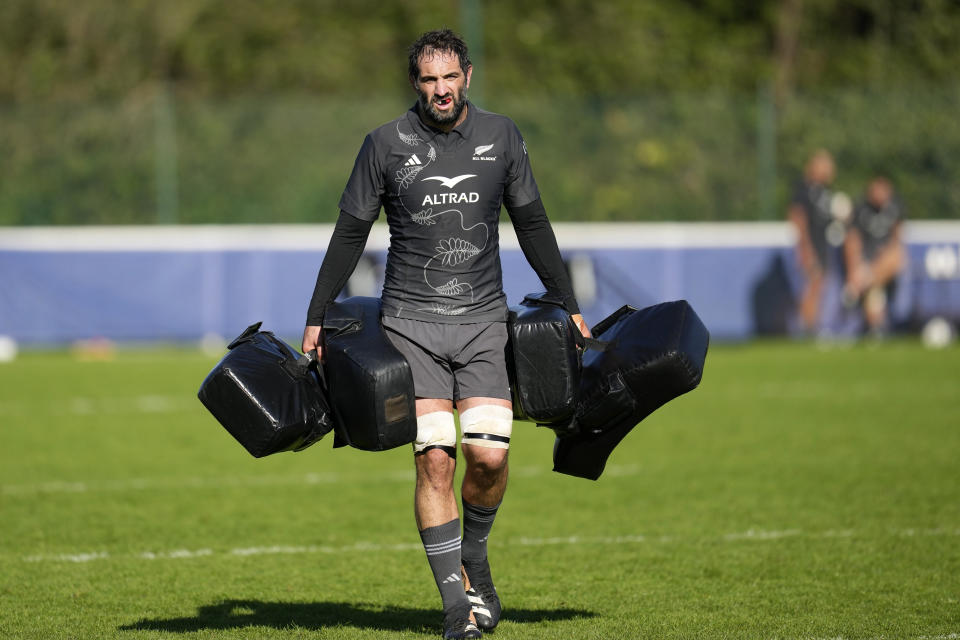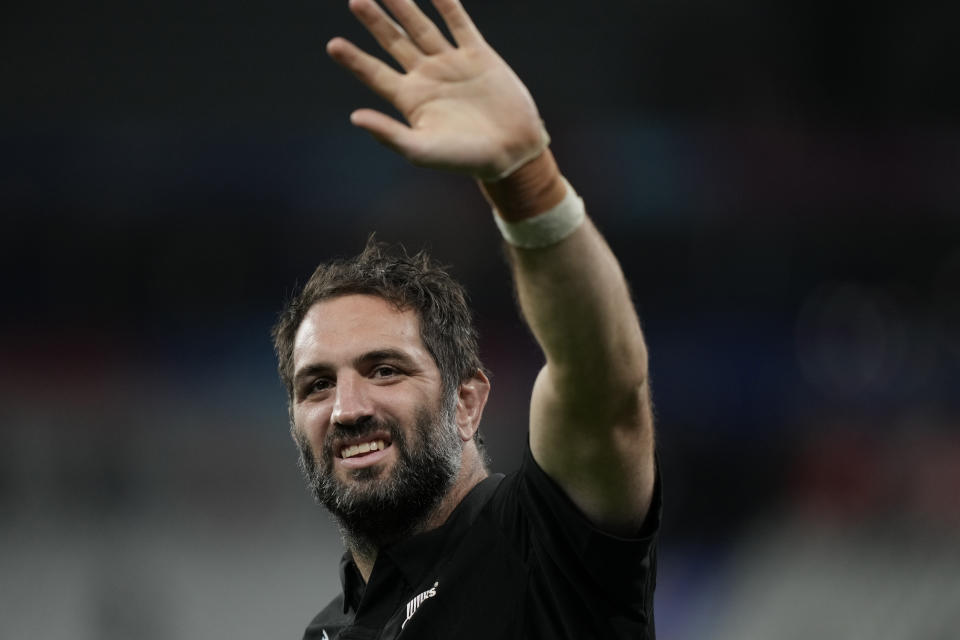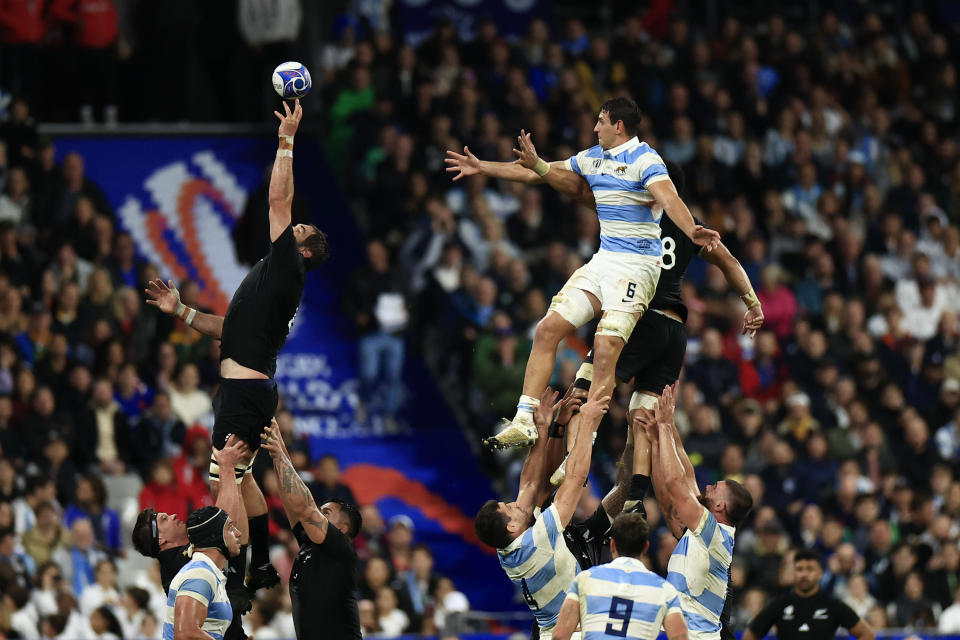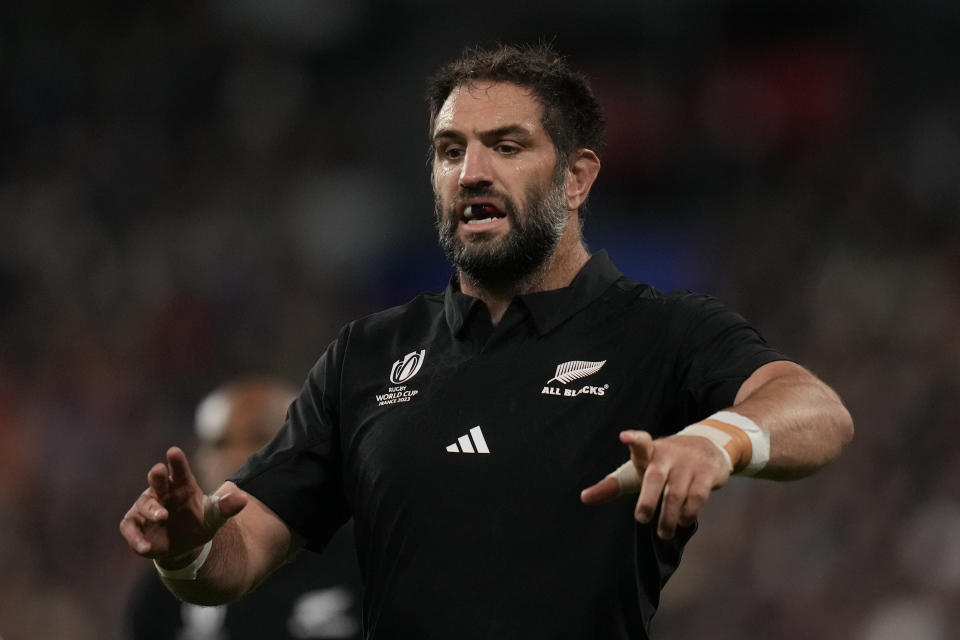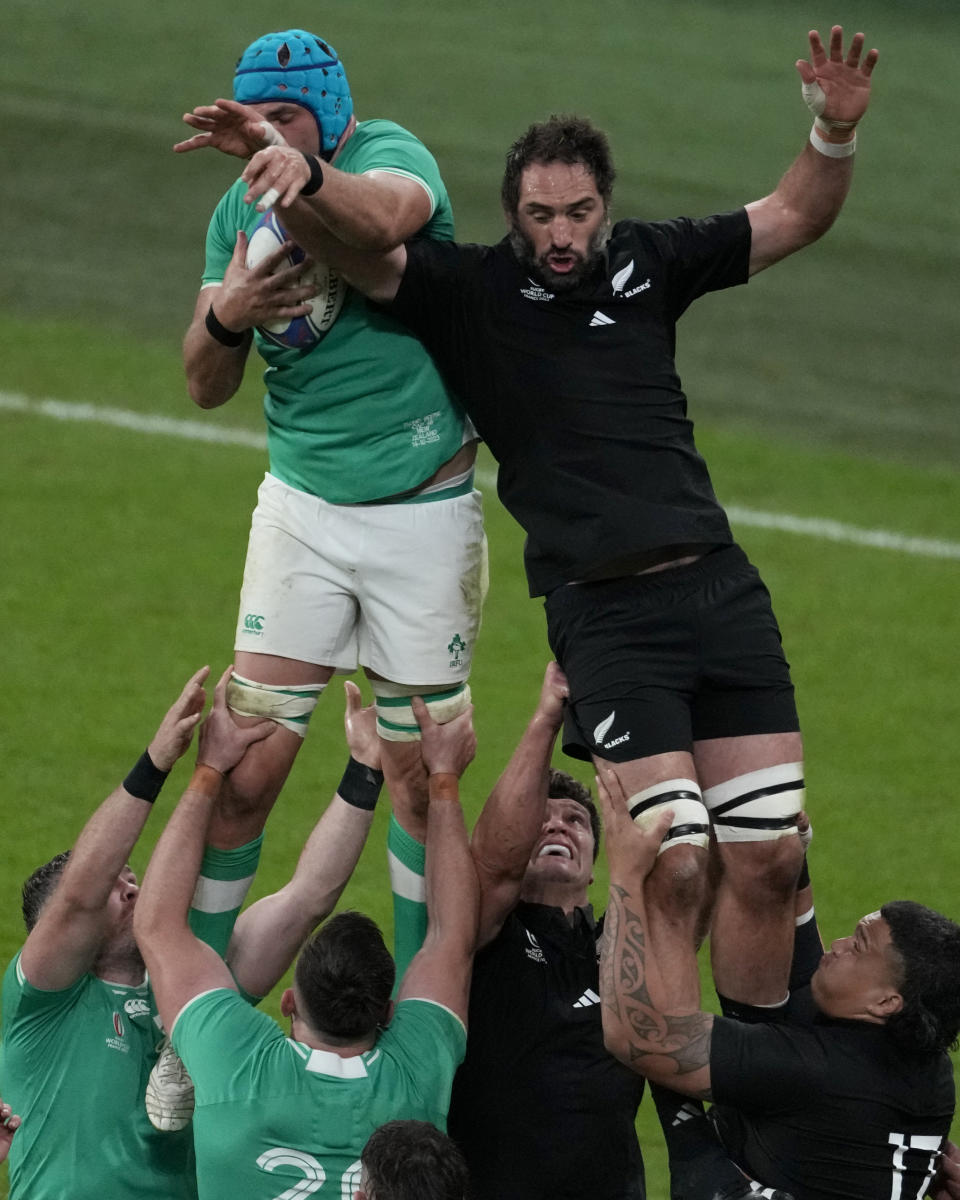All Blacks' Whitelock could become Rugby World Cup's first three-time champ
This Rugby World Cup has been one long chain of achievements for Sam Whitelock.
Just about every appearance has marked a milestone for the bearded New Zealand lock.
Against Namibia, his 148th test equaled Richie McCaw as the most capped All Black.
Against Italy, he passed McCaw to trail only Alun Wyn Jones' 171 as the world's most capped test player.
Against Uruguay, his 23rd Rugby World Cup match gave him the all-time appearance record.
Against Ireland, he was the first man to win four quarterfinals.
Against Argentina, he was the first man to play in four semifinals.
Last but not least is the Rugby World Cup final on Saturday when Whitelock has a shot at becoming the first three-time champion.
The opportunity to add to his 2011 and 2015 World Cup wins was a big driver in Whitelock extending his All Black career to more than 13 years.
“It is,” he said. “Every person wants to go out there and perform, and winning is the first thing everyone looks at.”
Winning is what Whitelock has been all about.
He was on track for success from his teens, when he was a rangy and mobile lock for New Zealand Schools, under-19s and the under-20s who won the inaugural world junior championship in 2008.
Whitelock, the third of four boys who grew up on a farm, credits his brothers for his competitiveness. They all made each other excellent.
George, 37, Sam, 33, and Luke, 32, became All Blacks. Adam, 36, played for New Zealand Sevens.
One time in 2013, all four appeared together in a Super Rugby game for the Crusaders against the Bulls.
Their grandfather Nelson Dalzell and great uncle Allan Elsom were All Blacks on the 1953-54 tour of Europe.
Their father Braeden was a New Zealand Colt and mother Caroline a dab hand at netball and tennis.
Braeden was proud of the boys' success but more so of their character. “The rugby is something that everybody sees but to me it is how good a guys they are and their families and kids, and all those things are the things you are gauged by,” he told the NZR+ podcast.
Sam hasn't forgotten how, at the Crusaders, he was taken under the wing of All Blacks lock Brad Thorn.
“He used to tell Owen Franks and myself before we'd even played a test match that we'd play 100,” Whitelock told NZR+. “He really set me up to be successful without forcing it on me. He took me aside and explained how he had been successful and a couple of tricks around looking after your body, and stretching, being professional.”
Whitelock made his All Blacks debut in 2010 as a second-half replacement for Thorn against Ireland in New Plymouth. Within a minute, he scored a try from backing up Piri Weepu. He bagged a second try in a 66-28 romp then told the media he'd be happy if he never scored again.
“I shouldn't have said it,” he said. “I started out with a pretty good strike rate but it has dried up since then.”
Whitelock's seventh and last test try was against Australia last year. He has two against South Africa, against which he's lined up in the reserves in the final on Saturday.
Scott Barrett has become established in the All Blacks second row, leaving the other slot between Whitelock and Brodie Retallick, a two-time world player of the year. Both are finishing their All Blacks careers after the final. They used to be the purring engine of the All Blacks pack. They started a world-record 66 tests together in the second row.
Retallick, 2 1/2 years younger than Whitelock, paid tribute to his old partner earlier in the tournament for setting the bar.
“He was the No. 1 lock and had been established in the All Blacks before I was,” Retallick said. “It was the competition to keep getting better and reach his level.” Even when Whitelock is named on the bench, “he's still pushing everyone around the field and trying to outdo everyone. Playing a lot of test matches with him has been special but the competitiveness he has throughout the training week, week-in week-out, has been the biggest benefit.”
Only Wales great Jones can understand the durability of Whitelock, who has played in 152 of New Zealand's 178 tests since his 2010 debut, started 127 of those tests, and won 125.
“Only a handful of people,” Jones told NZR+, “know what it takes . . . and what you've put into it, and its not players or anyone in the game, its your family and close friends.”
Whitelock agreed. “The work that has gone into it, I don't think people realize, and I don't think I (will) realize until I stop and have a think. Rugby players, and I am the same, we are always looking forward to the next week, even now. When rugby is all done and dusted in a few years' time it will sink in.”
All Blacks captain Sam Cane praised his stand-in captain.
“Anyone who has played a test match knows it's not just a game on the weekend, it's all the work that goes into it, and he is someone who optimises professionalism,” Cane said. “A lot of the work he puts in during the week is relentless. I think that is why he has been able to have such a long and successful career. He is a huge part of this team."
___ AP Rugby World Cup: https://apnews.com/hub/rugby

